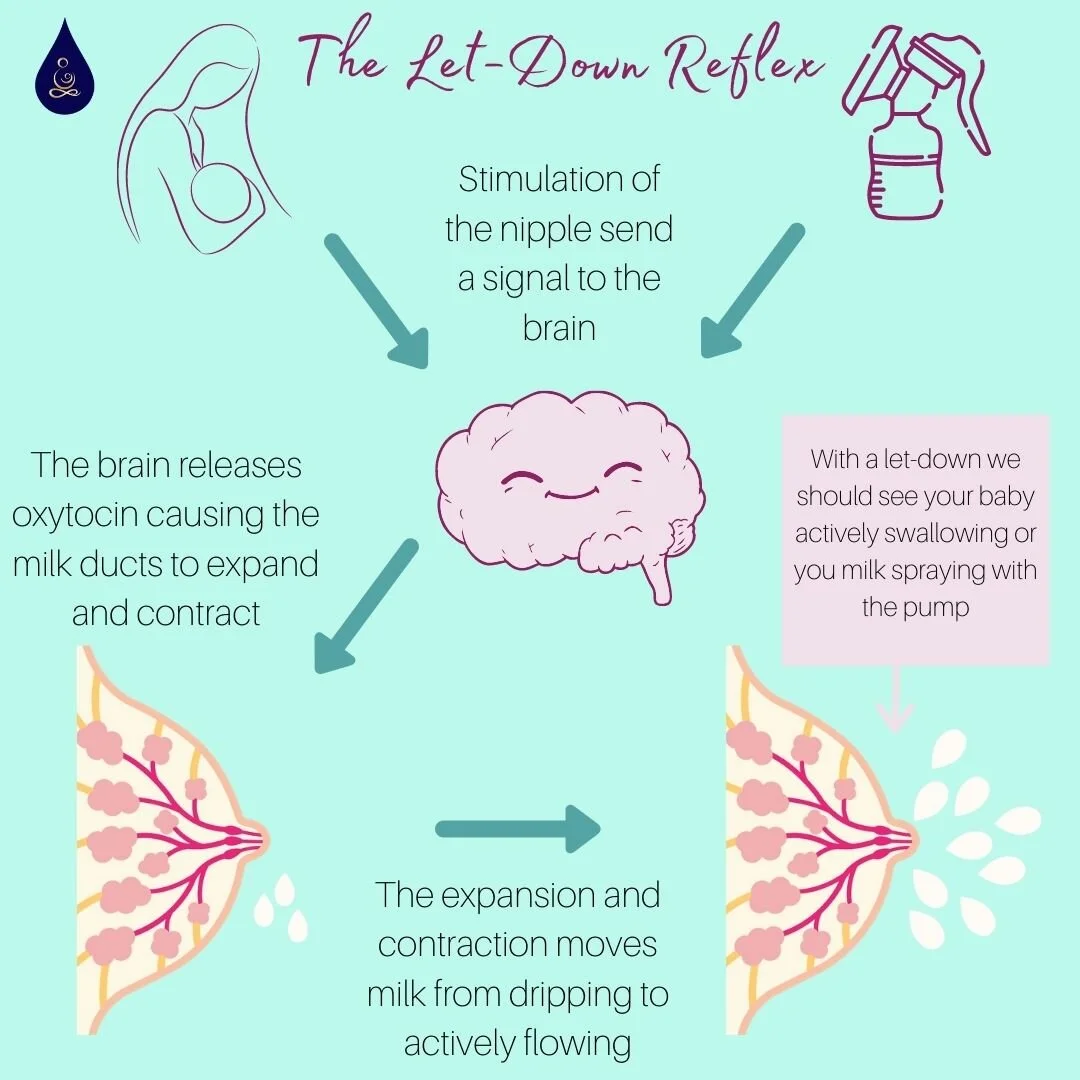What Exactly is a Let-Down Reflex?
What is a let-down reflex??
The let-down reflex is a vital reflex by which milk is moved from the breast to the waiting baby or pump. This is a trained reflex by which the body learns that a particular stimulus indicates the need for rapid milk expulsion. Typically the stimulus is the nipple being stretched by the action of nursing or pumping, but since this is a learned reflex other signals may become associated. For example if your baby crying proceeds your nursing sessions your body may begin to associate the crying with the need to let-down your milk…..hence the stories of letting down unexpectedly in a public place because another child is upset!
So how do I know if I am having a let-down reflex?
In the beginning of breastfeeding most people, but not all, will be able to feel their let-down reflex. Their breasts may feel warmer, heavier, and sometime tingle during a let-down. Over time many people will find they feel this sensation less and less, which is totally normal. Some people will never feel their let-down and we only know if happens because we can see the milk in a flange, or hear the baby quickly swallowing.
So why do we need to know about this?
The sensation of the stimulus applied to the nipple to trigger the let-down is learned by your body as what requires the release of oxytocin. So if your body is trained to let-down for a nursing baby, your body may not respond quickly to the stimulation of a pump. Or if your body is trained to let-down to the sensation of one pump-setup [A pump set-up is the particular combination or pump, flange size, and flange style you are using] and you switch to another your body may be slow to respond. There are certainly times we need to use this information to help train your body to let down your milk for your desired pump set-up.
If you are struggling to get a new pump or pump set-up to work for you learn more here about how to utilize your understanding of the let-down reflex to make pumping work better for you!
View Related Articles…


